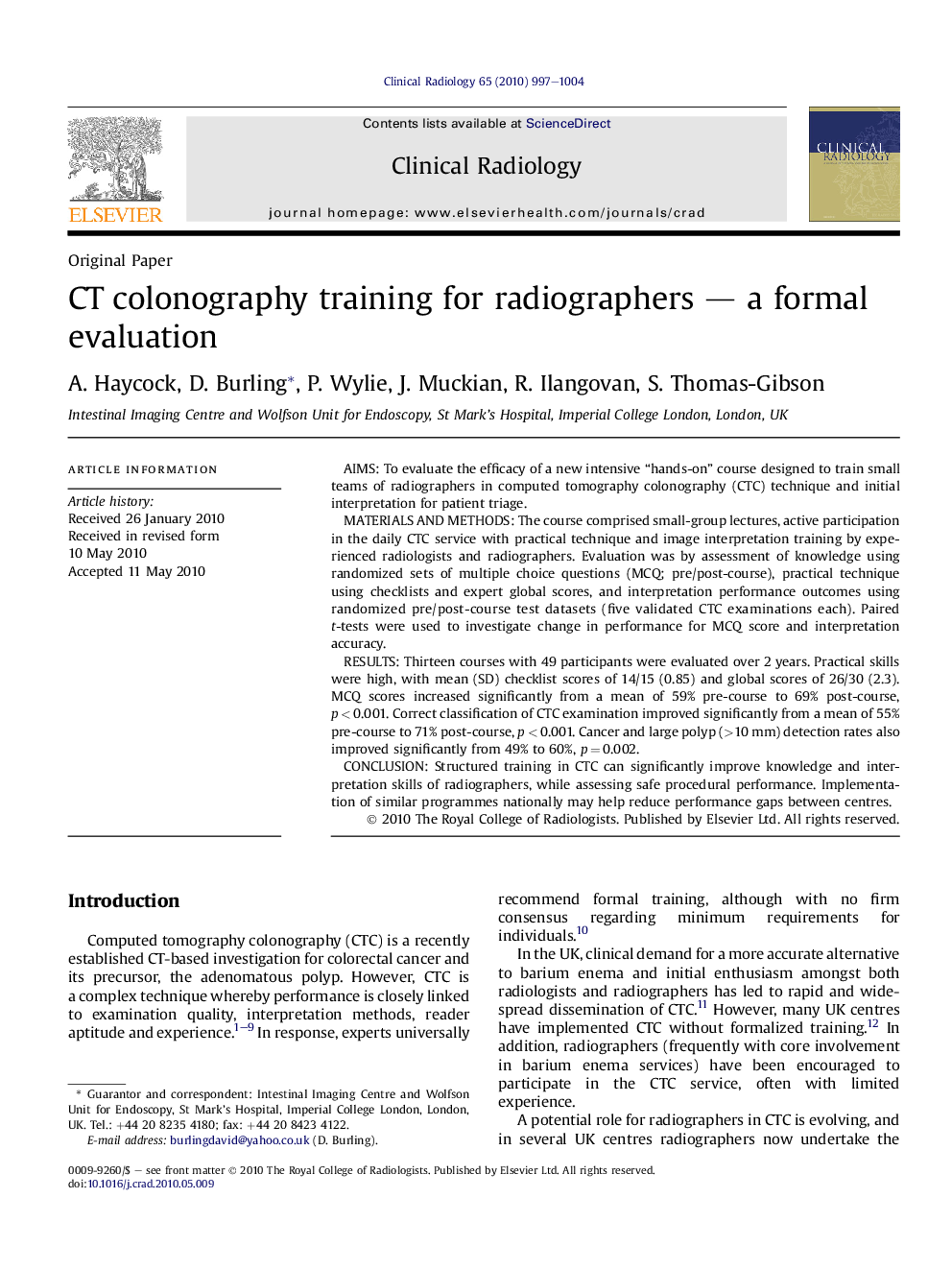| Article ID | Journal | Published Year | Pages | File Type |
|---|---|---|---|---|
| 3982300 | Clinical Radiology | 2010 | 8 Pages |
AimsTo evaluate the efficacy of a new intensive “hands-on” course designed to train small teams of radiographers in computed tomography colonography (CTC) technique and initial interpretation for patient triage.Materials and methodsThe course comprised small-group lectures, active participation in the daily CTC service with practical technique and image interpretation training by experienced radiologists and radiographers. Evaluation was by assessment of knowledge using randomized sets of multiple choice questions (MCQ; pre/post-course), practical technique using checklists and expert global scores, and interpretation performance outcomes using randomized pre/post-course test datasets (five validated CTC examinations each). Paired t-tests were used to investigate change in performance for MCQ score and interpretation accuracy.ResultsThirteen courses with 49 participants were evaluated over 2 years. Practical skills were high, with mean (SD) checklist scores of 14/15 (0.85) and global scores of 26/30 (2.3). MCQ scores increased significantly from a mean of 59% pre-course to 69% post-course, p < 0.001. Correct classification of CTC examination improved significantly from a mean of 55% pre-course to 71% post-course, p < 0.001. Cancer and large polyp (>10 mm) detection rates also improved significantly from 49% to 60%, p = 0.002.ConclusionStructured training in CTC can significantly improve knowledge and interpretation skills of radiographers, while assessing safe procedural performance. Implementation of similar programmes nationally may help reduce performance gaps between centres.
